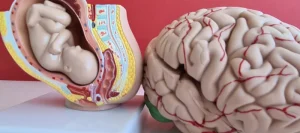
This reduced class I MHC expression can result from infection with certain types of viruses. NK cells eliminate cells with low class I MHC expression as well as cancer cells. Male rats on a liquid diet with 35% of calories coming from ethanol also showed enhanced mRNA half-life and protein expression of LPS-induced TNF-α by increasing TNF-α in liver monocytes/macrophages (Kishore, McMullen et al. 2001).
- The antibodies can recognize and interact with antigens, and each B-cell produces antibodies that recognize only one specific antigen.
- NK cells eliminate cells with low class I MHC expression as well as cancer cells.
- In a clinical case study reviewed in this issue, Trevejo-Nunez and colleagues report on systemic and organ-specific immune pathologies often seen in chronic drinkers.
- By incompletely understood mechanisms, alcohol abuse leads to a disruption of the intestinal barrier integrity which in combination with the mucosal injury induced by alcohol, increases the permeability of the mucosa [55].
- Alcohol increased gut permeability affects mucosal immunity and allows the translocation of bacterial or some critical components of their membrane into the bloodstream [47], reaching other organs that can be damaged.
World Health Organization Health Topics Alcohol

“Alcohol has diverse adverse effects throughout the body, including on all cells of the immune system, that lead to increased risk of serious infections,” said Dr. E. Jennifer Edelman, a Yale Medicine addiction medicine specialist. Though there’s still limited data on the link between alcohol and COVID-19, past evidence shows alcohol consumption can worsen the outcomes from other respiratory illnesses by damaging the lungs and gut, and impairing the cells responsible for immune function. These observations suggest that immune defects seen in individuals with AUD could also be mediated by nutritional deficiencies in addition to barrier defects and functional changes in immune cells. However, the contributions of each of these changes to increased susceptibility to infection in individuals with AUD remain to be determined.

Too Little Time Outdoors
- The first line of host defense involves both structural (i.e., epithelial) cells and immune cells (i.e., macrophages and dendritic cells) at mucosal surfaces.
- Your body breaks alcohol down into a chemical called acetaldehyde, which damages your DNA.
- They do this by destroying the cells in your body that have been taken over by viruses.
In addition, production of IL-10 in response to TLR2/6 stimulation was increased (Pruett, Zheng et al. 2004). This same treatment also inhibited the in vitro production of IL-6 and IL-12 by peritoneal macrophages harvested 2 hours following injection of LPS (Pruett, Fan et al. 2005). This phenomenon was not observed in a TLR4 mutant mouse, indicating that the acute phase response is mediated by TLR4 (Pruett and Pruett 2006).
Alcohol and the Immune System

This may increase alcohol consumption and risky decisionmaking and decrease behavioral flexibility, thereby promoting and sustaining high levels of drinking. They also offer evidence that alcohol-induced neuroimmune activation plays a significant role in neural degeneration and that the neuroendocrine system is involved in controlling alcohol’s effects on peripheral immunity. Decreased does drinking lower your immune system IL-2 and CCL5 levels provide insight into possible mechanisms of impaired T cell recruitment and proliferation. Increases in IL-7 and IL-15, which are critical for T cell survival, may be compensatory mechanisms for reduced IL-2 levels. Reduced IgE levels were also observed and may be related to the observed decrease in IgE synthesis regulators, IL-13 and CD40 ligand.
Impact of ethanol on CNS resident immune cells
- This pathway produces free radicals as a by-product of breaking down alcohol.
- They also offer evidence that alcohol-induced neuroimmune activation plays a significant role in neural degeneration and that the neuroendocrine system is involved in controlling alcohol’s effects on peripheral immunity.
- The activity of these receptors triggers the activation of a number of molecular pathways that result in the expression of genes of the innate immune system, mainly proinflammatory factors, that contribute to a permanent neuroinflammatory state of the CNS.
- That said, evidence also shows that even smaller amounts of alcohol can affect the immune system.
- Reduced IgE levels were also observed and may be related to the observed decrease in IgE synthesis regulators, IL-13 and CD40 ligand.
- 25.8% of people classified their recent consumption habits as binge drinking (excessive drinking in a defined amount of time).
